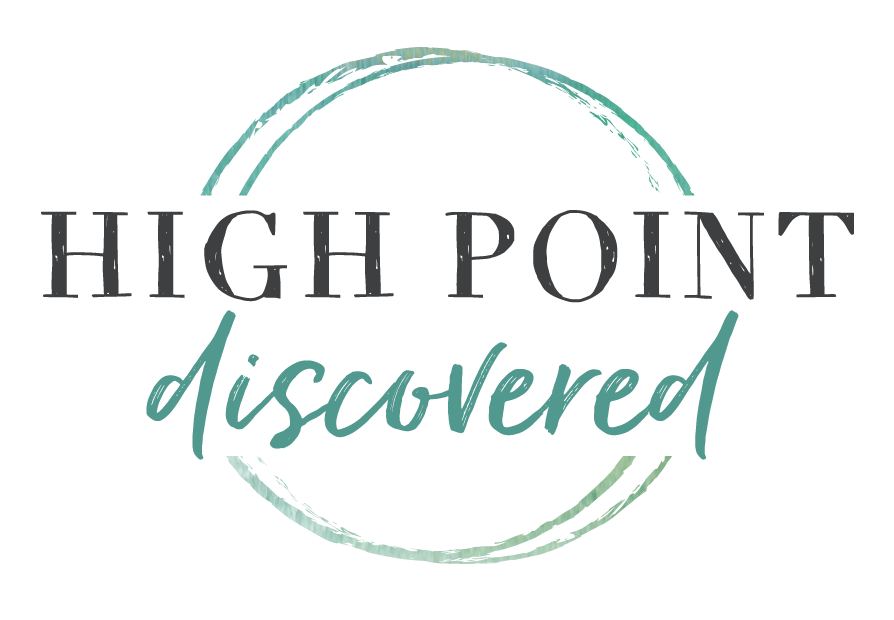Culinary Medicine: Kitchenology
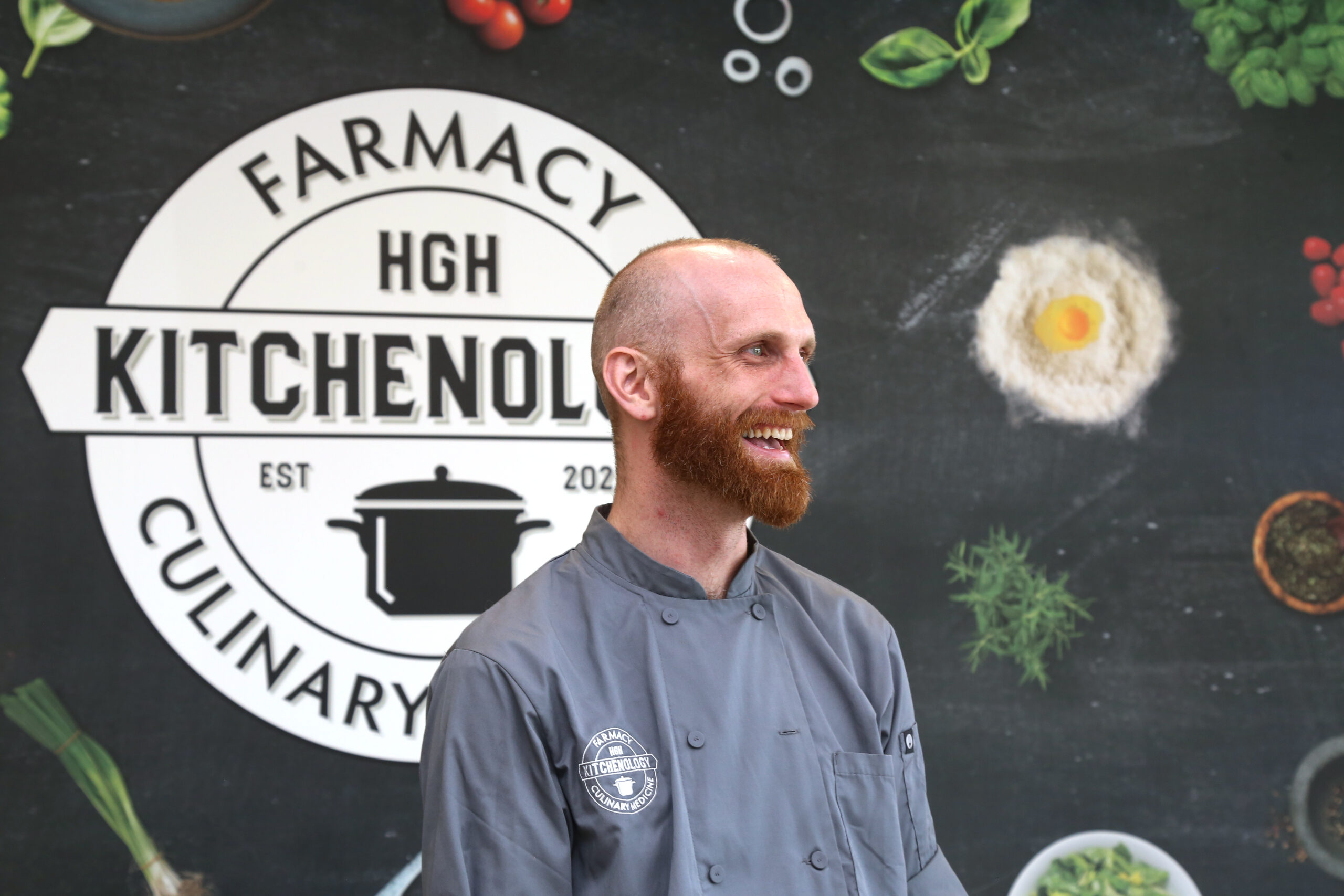
We’ve all heard it said, you are what you eat. And for many, consuming foods that are delicious and nutritious is as simple as a trip to the grocery store or a local restaurant. But for individuals experiencing food insecurity – that choice isn’t so simple. Not only are those foods harder to find, but they are often more expensive or require some level of culinary knowledge to prepare.
And that’s exactly what Jonathan Seelig realized, which motivated him to start his non-profits, Homegrown Heroes and Kitchenology. Because when it comes to food insecurity, Jonathan has more than his fair share of knowledge – and experience – but through overcoming his own challenges, he has started to change the way he tells the narratives about food insecurity.
“I grew up with a single mother of six,” Jonathan explains, “and I know food insecurity and my own hardships within school and my behavior was because of a lot of those matters.”
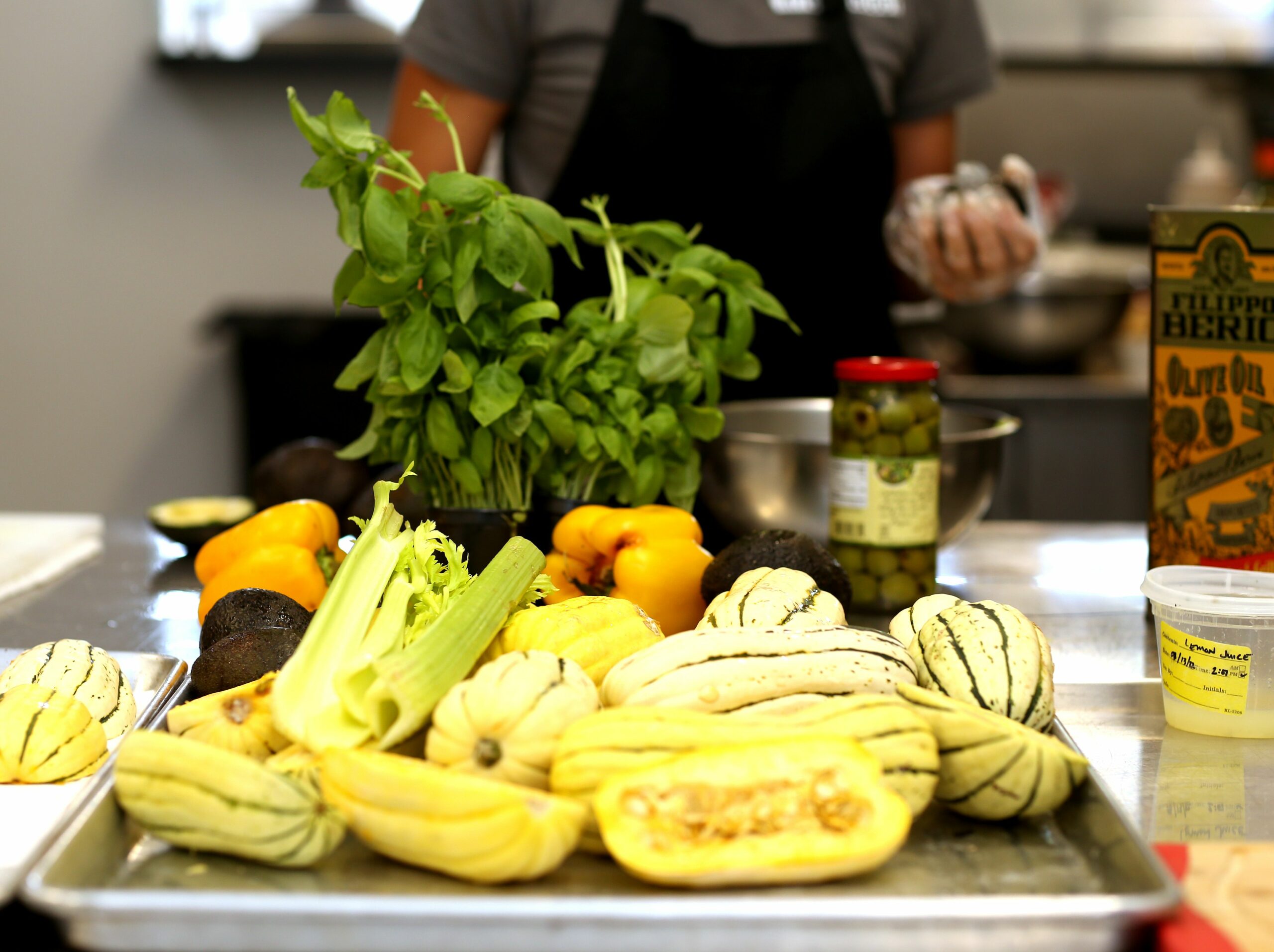
Jonathan explains that his problems in school often stemmed from the systemic issues his family faced when he was growing up. For example, food insecurity is a “downstream” issue of other, bigger issues in a society. Lack of education, economic stability, social and cultural disparities, and more can lead to issues like poverty and food insecurity. And in turn, those issues produce additional issues, like poor educational outcomes and poor overall health outcomes for those experiencing food insecurity. The key, according to Jonathan, is to go upstream – to head off the systemic issues before they ever happen.
For him, the key to seeing the bigger picture behind the damage of food insecurity came during his time studying graphic design at Guilford Technical Community College. Despite his hardships growing up, Jonathan grew to be extremely motivated to learn and grow and apply his talents, thanks to the constant believe his mother demonstrated in him.
“Thankfully, my mother is such a wonderful woman, and I never got lost,” he reflects. Once he began pursuing his study of graphic design at GTCC, Jonathan was asked to create a brochure for a non-profit. When he discovered through his research that High Point was number one in food hardship in 2015, he was astounded, despite his personal experience growing up with food insecurity.
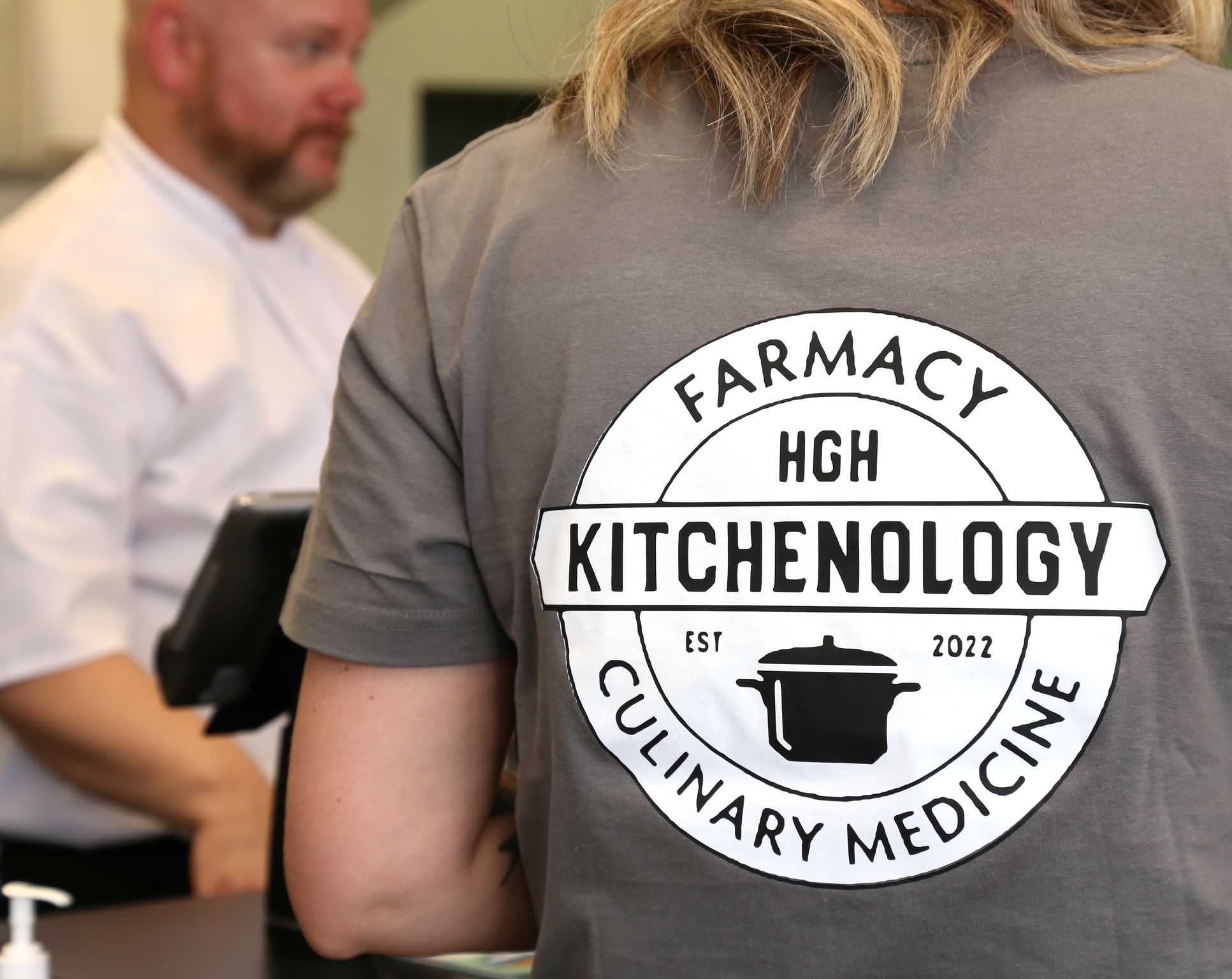
After he began working full time as a graphic designer, he found himself adopting the passion project of alleviating hunger in his free time. And the more he learned, the more convinced he became that food insecurity isn’t just a societal problem; it’s a public health crisis.
“It's been identified that health disparities come from food insecurity,” says Jonathan, “but not just from lack of access to foods, but also because of the magnifying issue of the salts and sugars in foods we consume.”
Jonathan points out that foods that tend to be healthier – organic foods, real fruits and vegetables, items made without saturated and trans fats – tend to be much more expensive. Often individuals experiencing food insecurity are forced to choose more affordable, unhealthy foods and have to sacrifice nutritious foods.
A passion for addressing this full-blown public health crisis became Jonathan’s full-time job, when he decided to launch Homegrown Heroes, a non-profit that teaches children to eat nutritious foods while learning how to grow and make them. In the creation of the non-profit, Jonathan asked himself:
“How do we help influence public health through educational nutrition?”
Because when it comes to food insecurity, Jonathan points out it’s not just important to increase accessibility to healthy foods, but to provide knowledge and information on why it’s important to choose healthy foods, their impact on long-term health outcomes, and how to prepare the foods in a way that is both nutritious and delicious.
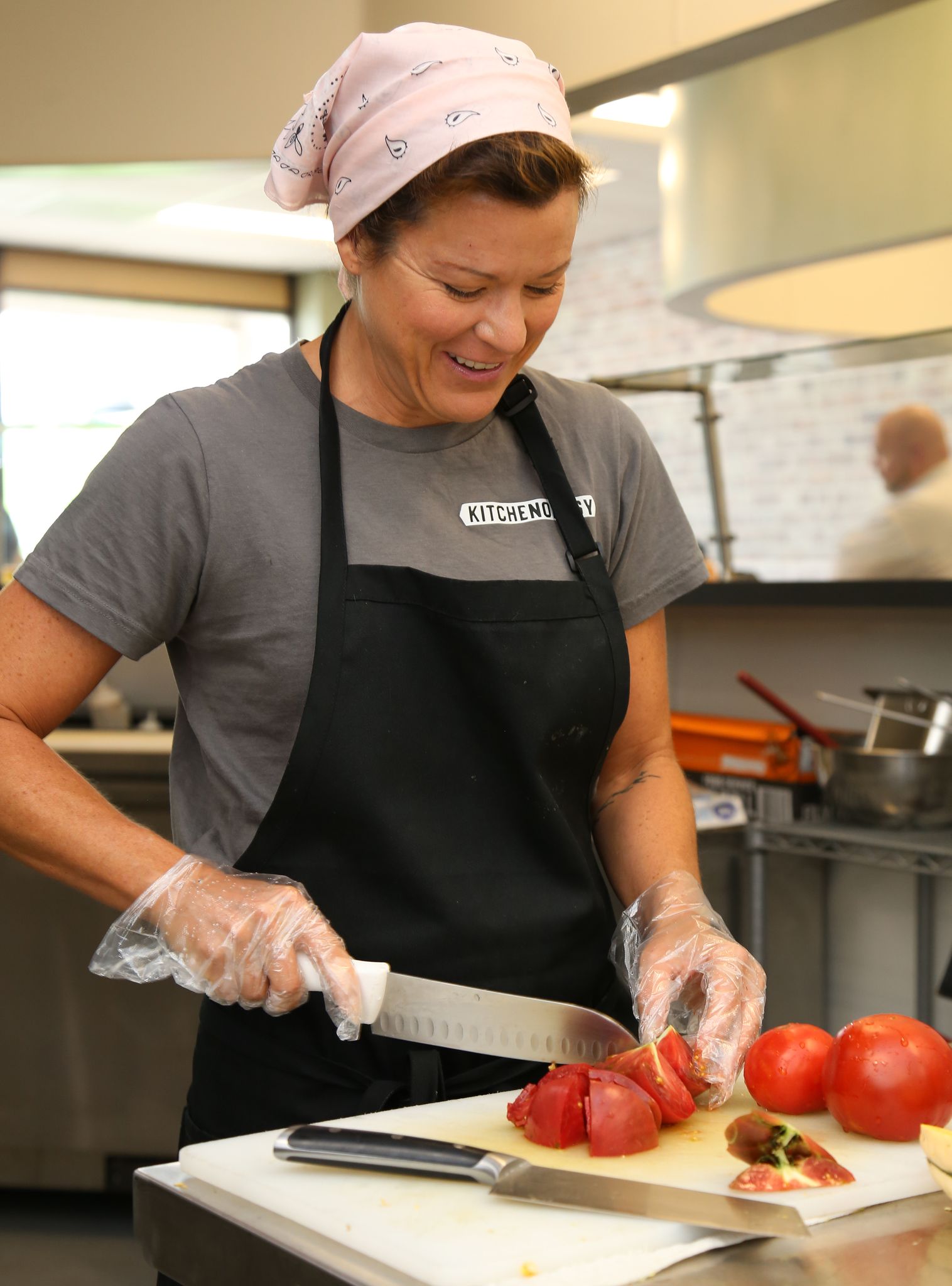
“We have to meet people where they are… so they can experience what it's like to enjoy good food and healthy food,” Jonathan explains. “You can make food healthy and make it flavorful.”
To do this, Homegrown Heroes began by launching a variety of educational programs: school gardening, community gardens, a mobile teaching kitchen, and more. Each aspect was developed to introduce school-age children at a young age to the concepts of healthy eating.
But the Homegrown Heroes team didn’t stop there. In the last year, the Jonathan has launched a new “social enterprise:” Kitchenology.
Kitchenology functions both as a permanent teaching kitchen – that educates young students, includes the junior chef program, and even offers classes to support older culinary dietetic students – and provides lunch and learn opportunities. And with each purchase made from Kitchenology, the proceeds are able to be turned back around to sustain their food security programming.
They’ve even collaborated with venues like Cohab Space to host pop-ups that bring their delicious food and pay-it-forward program to the community, and hope to do even more of these cross-community collaborations in the future.
“We have to meet people where they are, so they can experience what it's like to enjoy good food and healthy food. You can make food healthy and make it flavorful.”
Jonathan Seelig, Founder of Kitchenology
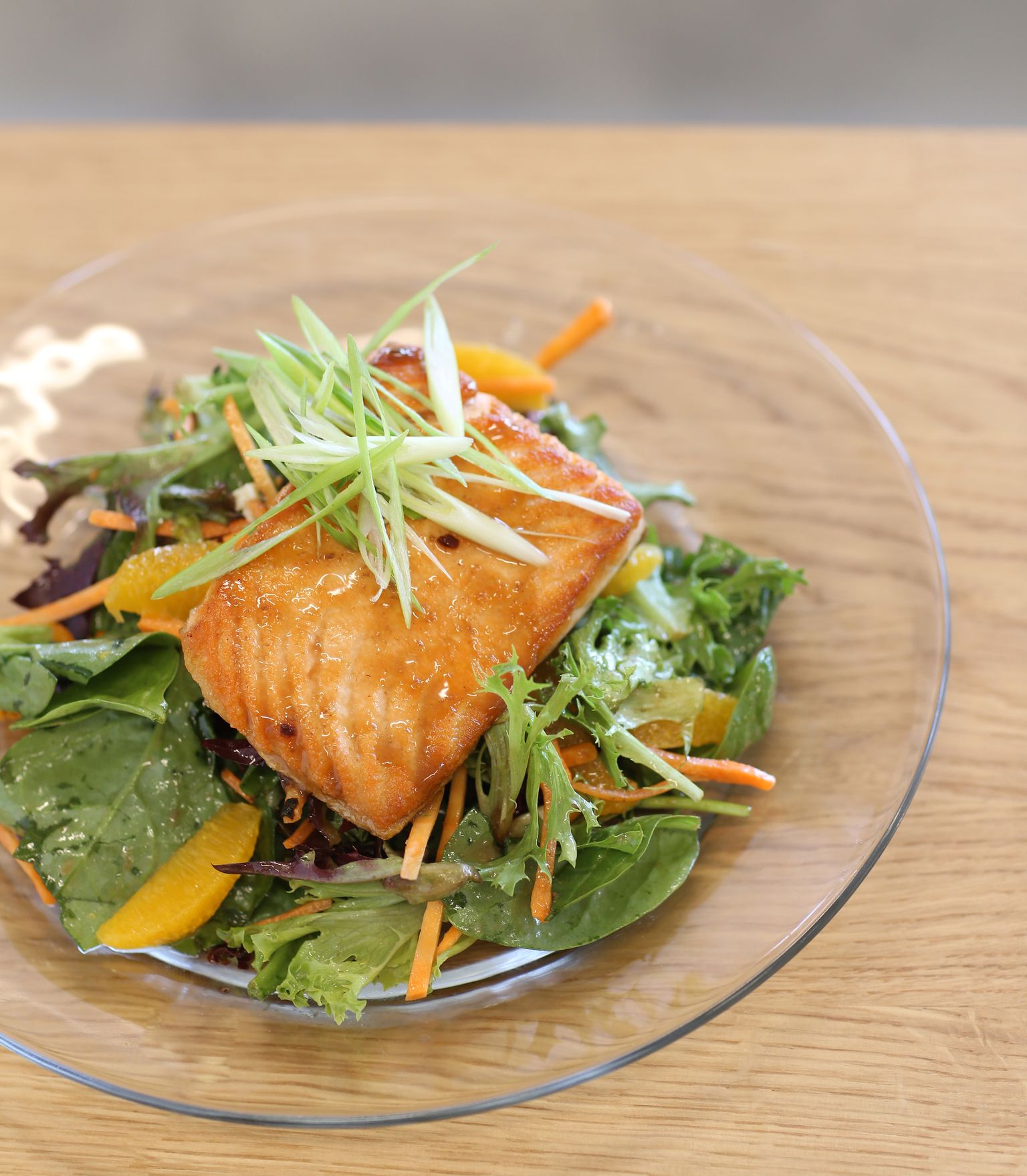
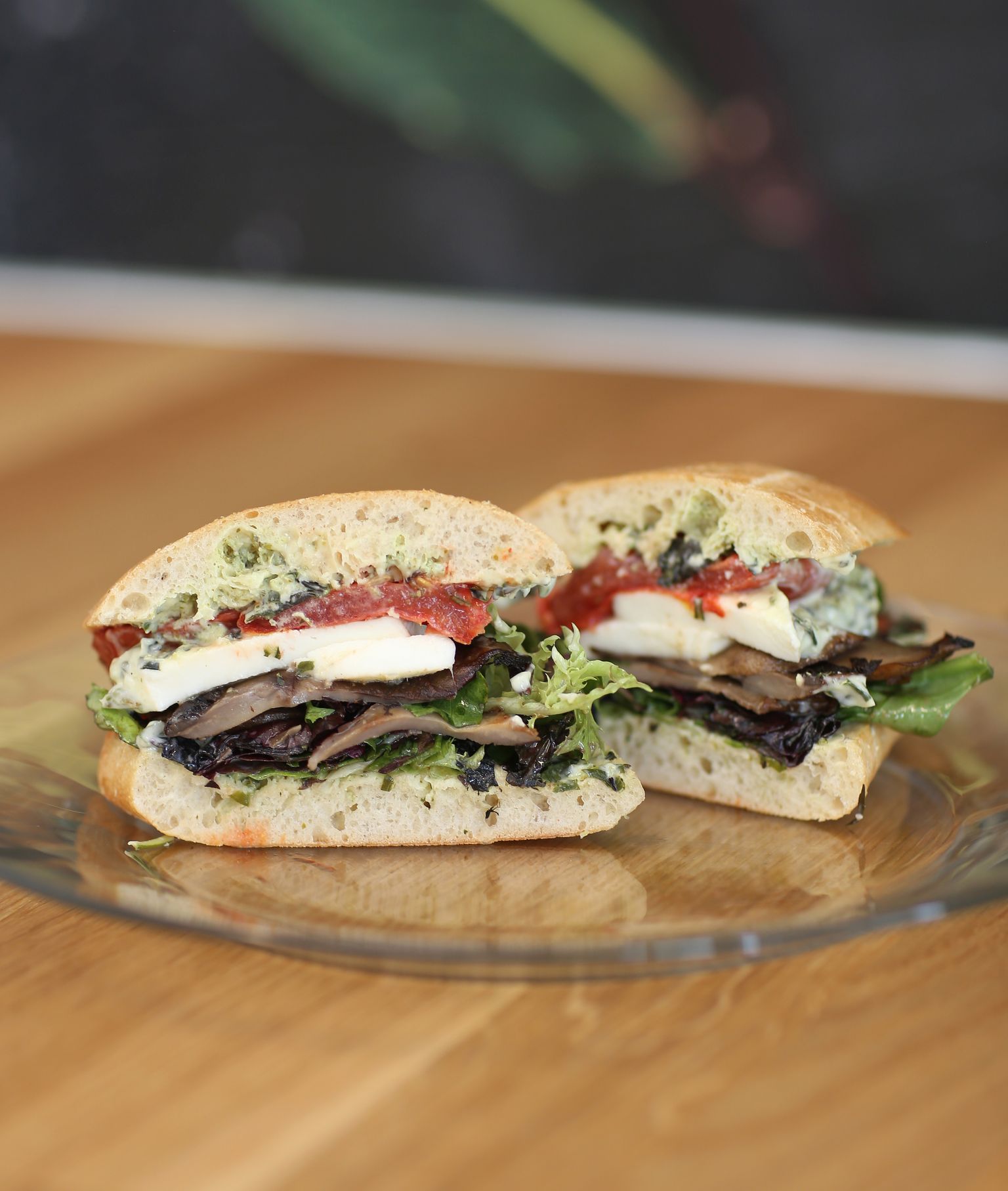
“The more you buy from us and support us, the more we are able to do to actually feed someone else,” Jonathan explains. He notes that a “social enterprise” is different than a charity. Charity can often make the recipient feel unworthy, rather than creating a feeling of shared community where we are all giving and receiving together.
Kitchenology not only provides programming around food education, but it also works hand-in-hand with the bigger goal of reorienting the way our community thinks about nutrition. The new idea: culinary medicine.
The idea began as far back as 2010, that our gut health largely correlates to other health outcomes. And researchers at Tulane University even built a teaching kitchen on their campus for medical students and culinary students to share, after they observed how little nutritional information medical students were receiving.
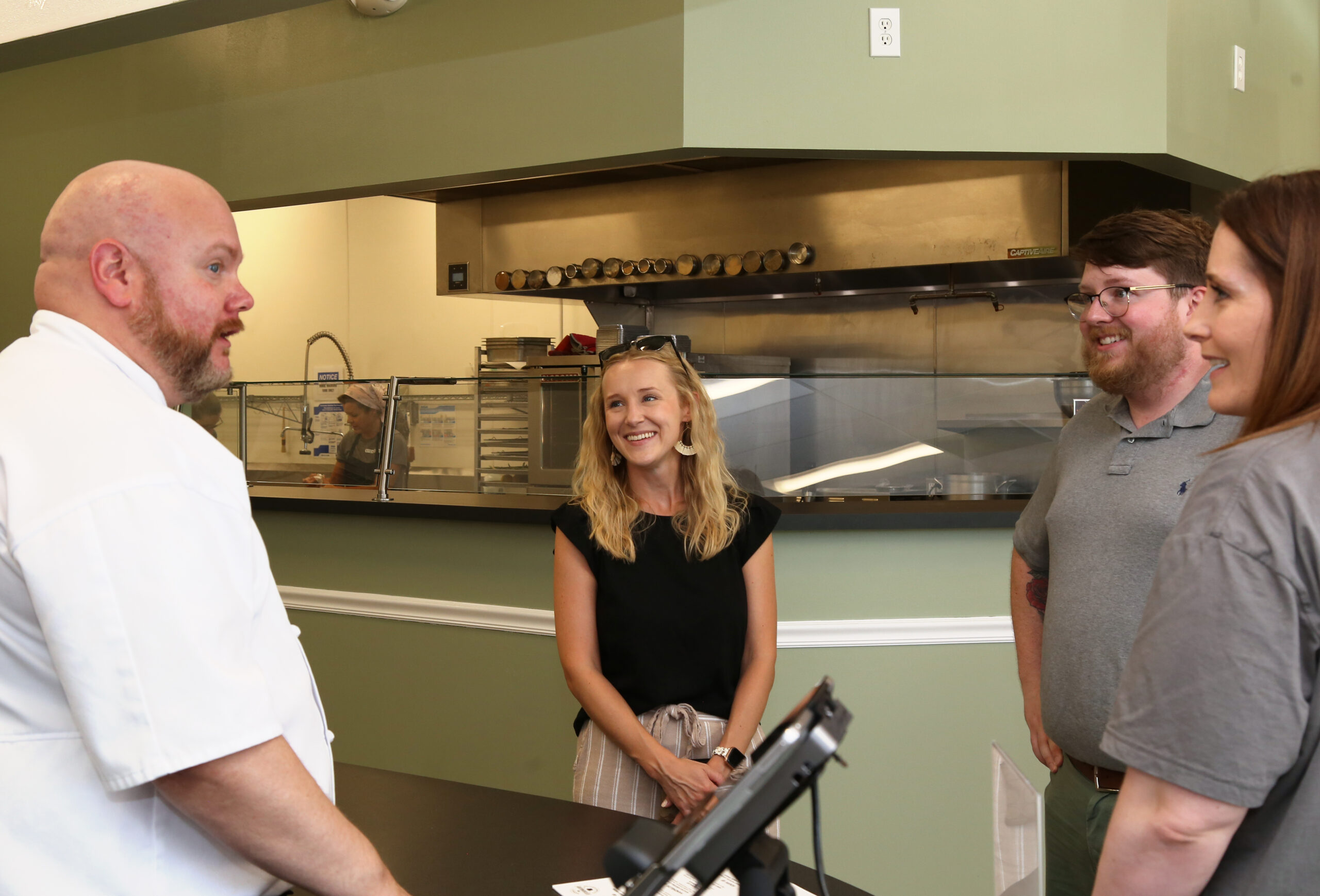
That’s why Jonathan brought in registered nurse and culinary expert, Ross Bolen, to join the Kitchenology team as Executive Chef. He is also currently pursuing Culinary Medicine Specialist certification from Tulane University, thanks to a generous sponsorship from Carolina Core Wellness. The team has also secured a $10,000 matching grant from Holt Environments for every donation made to their cause. In the meantime, Jonathan is pursuing a nutrition degree, and together, the Kitchenology team is exploring how they might change the landscape of public health through nutrition. Their hope in the future is to work with healthcare providers to help provide “food as medicine” prescription boxes through Medicare or Medicaid. These boxes would be catered towards specific medical needs of food insecurity-related health concerns.
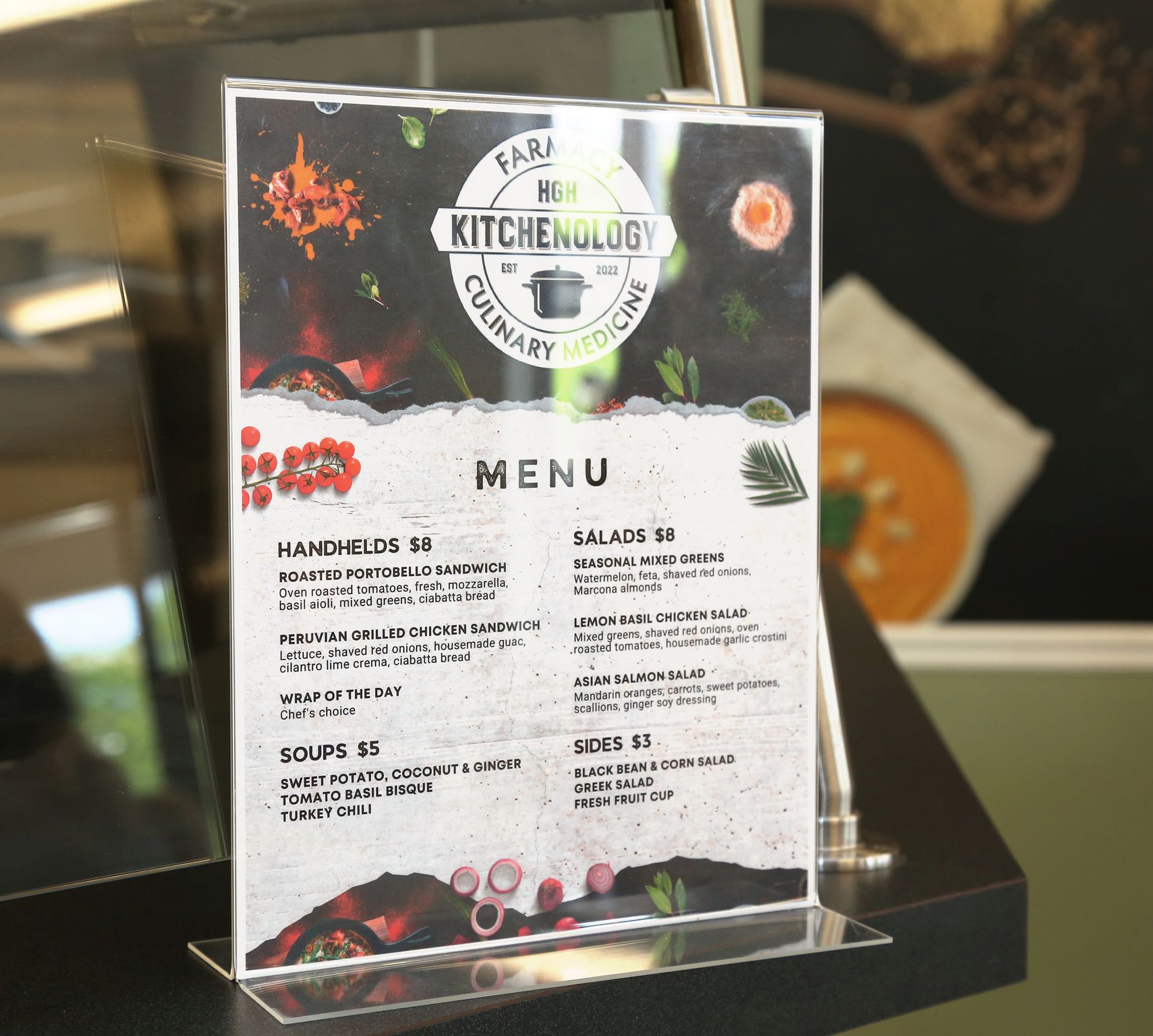
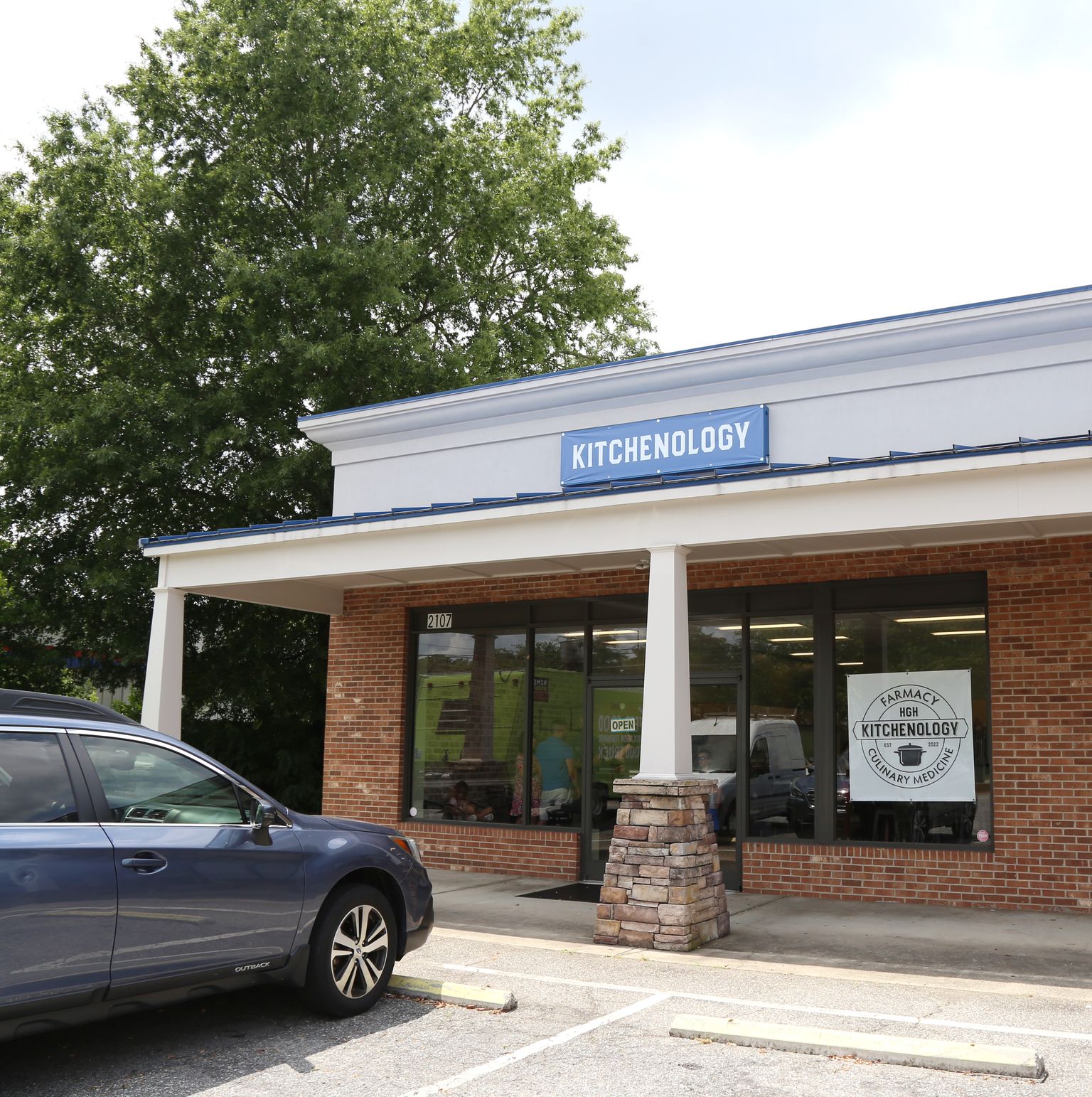
The beautiful outcome of this sort of partnership would mean that not only are people most likely to be experiencing food insecurity gaining more access to healthy foods, but the healthcare system could start to be part of the education of taking care of our bodies through healthy foods. And culinary medicine and food education could work in tandem to change the landscape of food insecurity in High Point and our eventually our nation.
“This is the conversation we’re having, how to trigger a new way of thinking,” Ross explains. After years of working in the healthcare field, he has seen firsthand the problems that poor eating cause for a person’s health. “It’s not just having a free meal. It’s knowing how to make this food and feed your family better.”
Kitchenology needs your support to make their food education and culinary medicine programs available to all experiencing food insecurity in our city!
Discover our High Points,
The HPD Team
Photography by Katie Bardou Photography
